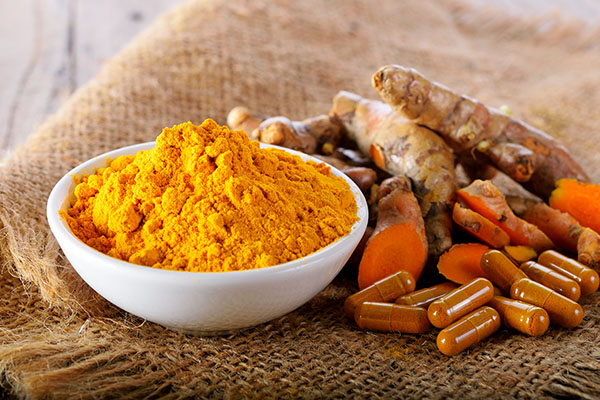
A new study discovers that the active ingredient in turmeric known as curcumin can help reduce weight gain after menopause through feeding gut bacteria, as reported by NutraIngredients-USA.com.
Researchers from the China Academy of Chinese Medical Sciences in Beijing analyzed the association between curcumin and post-menopausal weight gain through experiments conducted in 18 rats — six rats underwent through a removal of their ovaries known as ovariectomy and were fed with curcumin, six rats also underwent ovariectomy but were given distilled water, and the six remaining rats underwent a sham operation and were administered with distilled water.
They observed that the curcumin-fed rats had a greater gut microbiome diversity than those that were given distilled water. Results also showed that the ovariectomized rats administered with distilled water had a decrease in gut bacterial diversity, unlike the group of rats that underwent a placebo surgery. Moreover, the mice in the distilled water group gained more weight compared to the placebo group. On the other hand, the curcumin-fed group did not gain weight.
“Estrogen deficiency induced by ovariectomy caused changes in the distribution and structure of intestinal microflora in rats, and curcumin could partially reverse changes in the diversity of gut microbiota,” said Zhiguo Zhang, first author of the study.
The researchers noted that the study may be limited because it was small-scaled. However, they suggested that if the results are the same in subsequent larger animal studies, the results could be applicable to future human studies.

How curcumin affects gut diversity
Researchers observed that unlike the placebo group, the ovariectomized, distilled water-fed rats had a greater ratio of phyla Firmicutes and Bacteroidetes in the gut, which may have contributed to the greater weight gain in the rats. Past studies in both menopausal women and animals have shown changes to microbiome composition after ending ovulation. In addition, a higher Firmicutes/Bacteroidetes ratio has been linked with obesity in humans.
Moreover, the curcumin-fed group displayed lower levels of Anaerotruncus, which is a bacterium that has been associated with prenatal stress and age-related macular degeneration. In addition, curcumin was found to reduce the abundance of Helicobacter pylori, the bacterium that causes stomach ulcers (Related: Curcumin is the most widely-studied plant-derived medicinal chemical in modern science, statistical analysis reveals.)
The study was published in Nutrients.
Why curcumin should be added to your diet
According to an entry at News-Medical.net, curcumin is a constituent of the Indian spice turmeric, which is a type of ginger. Curcumin can be obtained from the dried rhizome of the turmeric plant. The plant's rhizome or root is processed to form turmeric which contains two to five percent curcumin. Curcumin is also used in food products as a yellow food colorant and food additive.
According to HealthLine.com, one of the health benefits of curcumin is its natural anti-inflammatory property that helps combat many molecules that cause inflammation. Curcumin also has antioxidant effects. It neutralizes free radicals by itself, then triggers the body's own antioxidant enzymes. Moreover, curcumin enhances levels of the brain hormone known as Brain-Derived Neurotrophic Factor, which increases the growth of new neurons and inhibits different degenerative processes in the brain. The nutrient is also beneficial to the heart as it improves the function of the endothelium.
Curcumin may help improve the pathological process of Alzheimer’s disease. Different studies show that the nutrient can help treat symptoms of arthritis and depression. It can also be more effective than anti-inflammatory drugs in some cases, and can work as effective as prescription drugs for depression. Curcumin can also help delay aging and fight age-related chronic diseases. Curcumin may likewise help prevent and treat cancer.
Read more news similar to this at Nutrients.news.
Sources include:
Please contact us for more information.






















